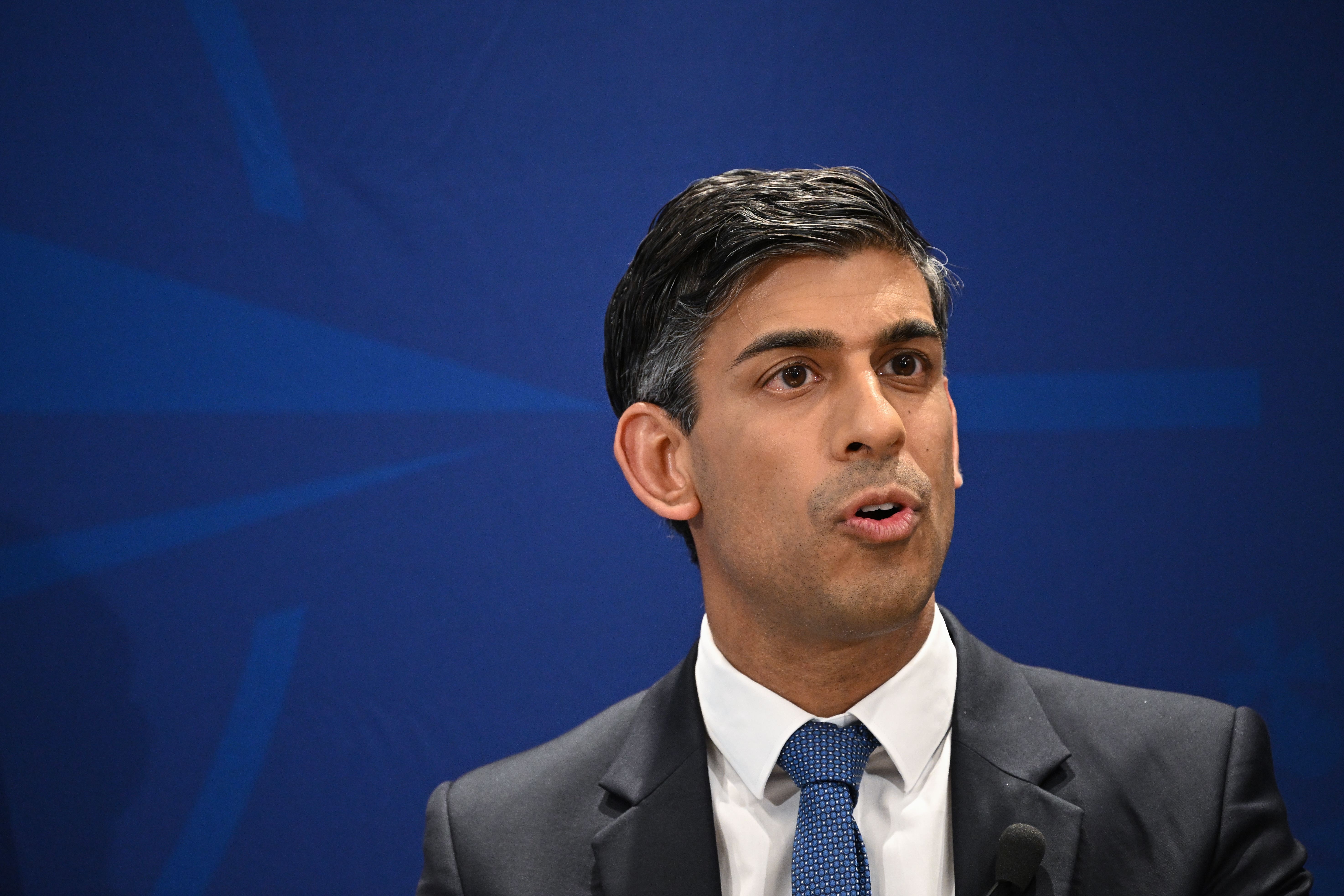Rishi Sunak accepts pay recommendations but questions remain over funding
The Government has ruled out borrowing money to fund the rises recommended by pay review bodies.

Your support helps us to tell the story
From reproductive rights to climate change to Big Tech, The Independent is on the ground when the story is developing. Whether it's investigating the financials of Elon Musk's pro-Trump PAC or producing our latest documentary, 'The A Word', which shines a light on the American women fighting for reproductive rights, we know how important it is to parse out the facts from the messaging.
At such a critical moment in US history, we need reporters on the ground. Your donation allows us to keep sending journalists to speak to both sides of the story.
The Independent is trusted by Americans across the entire political spectrum. And unlike many other quality news outlets, we choose not to lock Americans out of our reporting and analysis with paywalls. We believe quality journalism should be available to everyone, paid for by those who can afford it.
Your support makes all the difference.Rishi Sunak will give millions of public sector workers pay rises of up to 6.5% but spending cuts may be required in order to fund them.
The Prime Minister accepted the recommendations from pay review bodies, thought to include 6.5% rises for teachers and 6% for junior doctors.
But questions remain over how the increases will be funded, with the Government ruling out extra borrowing to help departments meet the cost.
That could leave the money needing to come from within existing budgets, requiring cuts amounting to billions of pounds.
Formal announcements are expected later on Thursday but The Times reported that as well as the awards for teachers and junior doctors, police and prison officers are expected to receive rises of 6% while armed forces personnel will receive 5-6%.
Chancellor Jeremy Hunt said the Government would take “difficult but responsible” decisions on the nation’s finances and public sector pay in order to manage debt and curb inflation.
The current level of CPI inflation is running at 8.7% and Mr Sunak – who has promised to cut it to around 5.3% by the end of the year – wants to avoid pay increases which could fuel a wage-price spiral.
Mr Hunt told MPs on Thursday that “it is important to deliver on the Prime Minister’s priority to get debt falling and to control borrowing to avoid adding inflationary pressures and risk prolonging higher inflation”.
“That means taking difficult but responsible decisions on the public finances, including public sector pay, because more borrowing is itself inflationary.”
The wider economic challenge facing the Chancellor and Prime Minister was illustrated by official figures showing the UK economy contracted by 0.1% in May.
The 6% award for junior doctors came as medics joined picket lines across England.
Disruption to thousands of planned appointments is expected as junior doctors in England on Thursday started their longest walkout yet in the pay dispute.
The strike started at 7am and ends at the same time on Tuesday.
Meanwhile, teachers from the NASUWT union in England plan to stage continuous action short of strikes starting in September, although its members could still walk out in the autumn if the row continues.